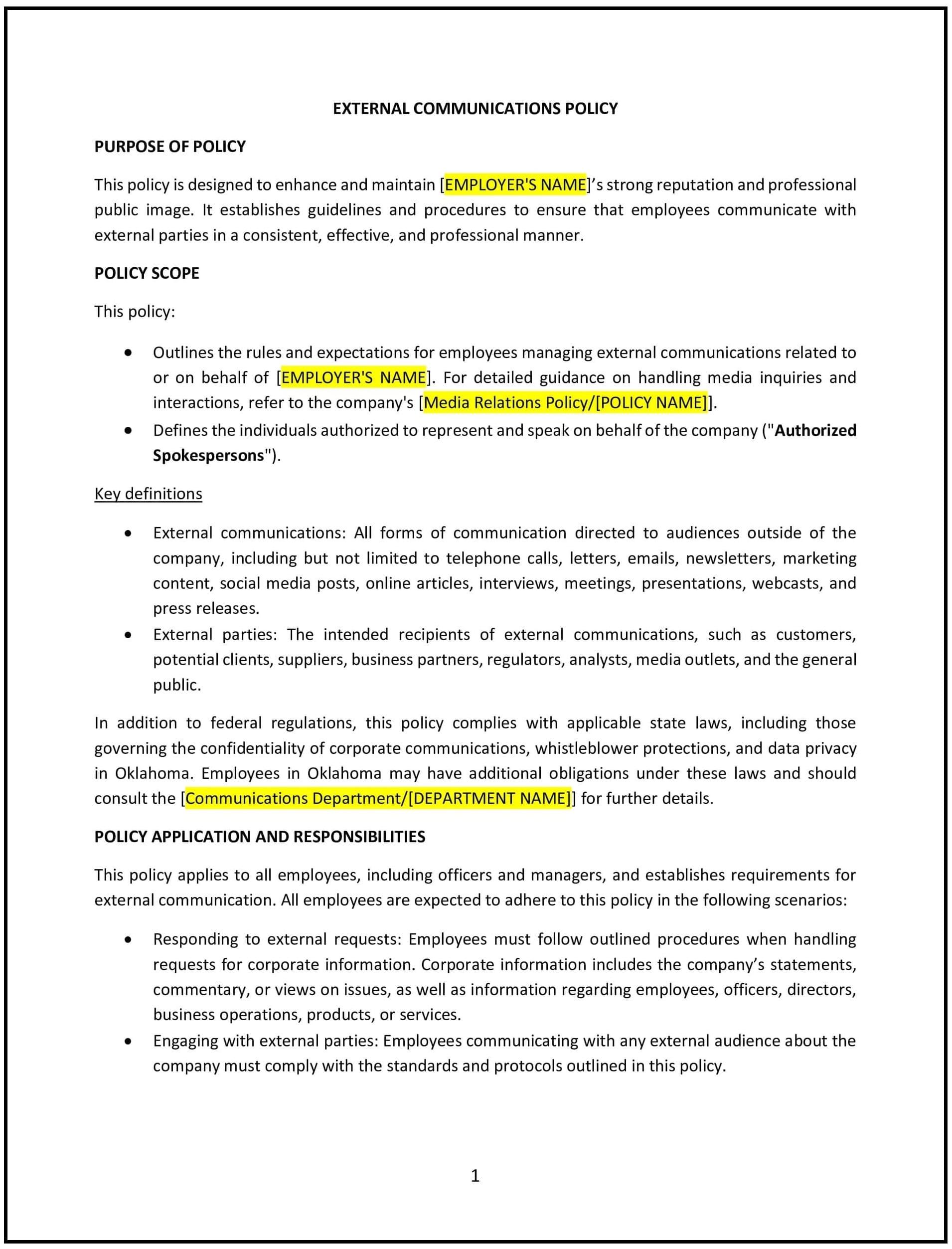External communications policy (Oklahoma): Free template
Got contracts to review? While you're here for policies, let Cobrief make contract review effortless—start your free review now.

Customize this template for free
External communications policy (Oklahoma)
This external communications policy is designed to help Oklahoma businesses establish clear guidelines for managing public statements, media interactions, and corporate messaging. The policy outlines who is authorized to speak on behalf of the company, approval processes for public statements, and best practices for external engagement.
By implementing this policy, businesses can protect their reputation, ensure message consistency, and reduce the risk of misinformation.
How to use this external communications policy (Oklahoma)
- Define authorized spokespersons: Identify employees or departments responsible for handling external communications, including media inquiries and official statements.
- Establish approval procedures: Require pre-approval for press releases, interviews, and major external statements.
- Set guidelines for media interactions: Outline how employees should handle media requests and escalate inquiries to designated personnel.
- Regulate public speaking engagements: Provide approval procedures for employees representing the company at conferences, industry events, or public forums.
- Manage crisis communications: Define a response plan for managing public relations crises, including designated crisis response teams.
- Address social media interactions: Outline rules for employees engaging in public discussions about the company on personal or professional platforms.
- Review regularly: Assess the policy periodically to reflect changes in communication channels and Oklahoma-specific business considerations.
Benefits of using this external communications policy (Oklahoma)
Implementing this policy provides several advantages for Oklahoma businesses:
- Protects brand reputation: Ensures all external statements align with the company’s values and messaging.
- Reduces misinformation risks: Prevents unauthorized or inaccurate statements from being released.
- Strengthens crisis response: Establishes clear procedures for handling public relations issues.
- Improves consistency: Ensures all external messaging is aligned across different communication channels.
- Reflects Oklahoma-specific business considerations: Addresses regional media dynamics and industry engagement practices.
Tips for using this external communications policy (Oklahoma)
- Train employees: Educate staff on who is authorized to speak on behalf of the company.
- Monitor media coverage: Track mentions of the company in the press and online.
- Maintain message consistency: Ensure all public statements align with company values and strategic goals.
- Have a crisis response plan: Prepare for potential public relations issues with a clear action plan.
- Update policies as needed: Adjust communication protocols based on business growth and media landscape changes.